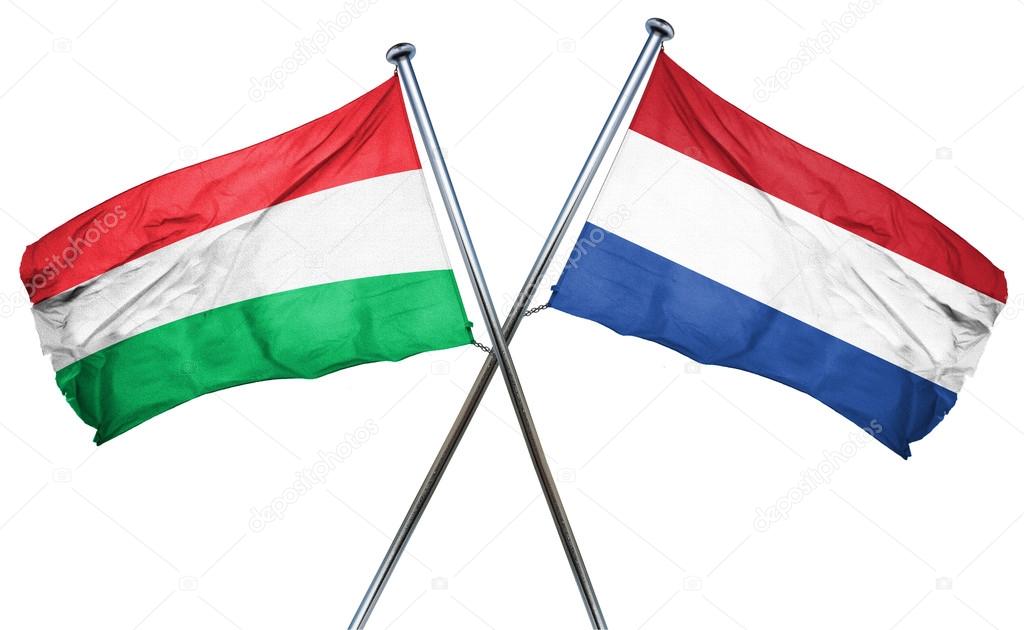Since 17th August 2015 the European Succession Regulation is in force, which dramatically changes Succession cases in Europe.
What is the regulation aimed at?

More and more EU citizens are moving to another EU country to live, work or to start a family there. Prior to this regulation, many times the authorities of several countries were engaged in Succession cases, and the law of several countries had to be applied, if the testator was not living in the state of his nationality and/or had assets in several EU countries. This meant that those affected often had to launch several Succession proceedings in different countries and had to take into account the laws of several states. As a result, such procedures involved high costs, took a long time and often there were even contradictory decisions by the authorities of different states.
All this should be simplified with the European Succession Regulation.
So let’s see the rules!
Applicable law
The law applicable to the succession as a whole shall be the law of the State in which the deceased had his habitual residence at the time of death.
This means that e.g. for the estate of a Dutchman with habitual residence in Hungary at the time of his death, Hungarian Succession law will be applied..
Example: Mr. Jansen from Rotterdam and his wife have been living in Siófok, Hungary for two years. He has a bank account in Holland, a house in Hungary and a weekend house on the French Riviera. Mr. Jansen dies in Holland.
Result: Since Mr. Jansen had had his habitual residence in Hungary at the time of his death, the succession procedure for his entire estate (including his property in Holland) will be is settled in according to Hungarian law.
The Regulation covers all Member States except Denmark, Ireland and the United Kingdom. Here, as well as in third countries (eg Switzerland), the general rules of international private law will continue to apply.
 Choice of Law
Choice of Law
A person may choose as the law to govern his succession as a whole the law of the State whose nationality he possesses at the time of making the choice or at the time of death.
A person possessing multiple nationalities may choose the law of any of the States whose nationality he possesses at the time of making the choice or at the time of death. The choice shall be made expressly in a declaration in the form of a disposition of property upon death or shall be demonstrated by the terms of such a disposition., but it does not mean that the country of the law chosen will carry out the proceedings!
It is important to note that the Laws of only one coutry will govern the whole proceedings regardless of the fact in which Member State the individual assets are located.
If, in our example, Mr Jansen created a valid will, in which he determined that the Dutch law shall apply for his inheritance , the Succession case will be governed by the Laws of the Netherlands.
Jurisdiction
The courts of the Member State in which the deceased had his habitual residence at the time of death shall have jurisdiction to rule on the succession as a whole.
The term “court” means not only the court in the ordinary sense, but any authority that can make decisions on succession in a given country (which may vary in different Member States)
This means that even in the case of a choice of law, only the applicable law can be chosen, not the authority (or court) in charge of the succession procedure.
Mr. Jansen in our example had his habitual residence in Hungary at the time of his death. He had a will in which he had chosen the Dutch law for his inheritance. His succession procedure with respect to his entire property (ie. concerning his assets in Holland , France and Hungary) will be carried out under Dutch law by a Hungarian notary public. In this case, the succession procedure will take a long time, because the Hungarian notary will probably not know the Dutch succession law. Without a choice of law, a Hungarian notary would handle the procedure much faster under Hungarian law.
European Certificate of Succession
The European Succession Regulation introduced the so called European Certificate of Succession, which is issued for use in another Member State. With this certificate the heir can prove his legal status.
In our example the heirs of Mr Jansen live in the Netherlands. After the death of Mr Jansen, the heirs can apply for a European Certificate of Succession issued by the Hungarian notary, which will be recognized in Holland and also in France.
Mr Jansen’s heirs can submit this certificate as proof of their status as heir to the French Land Registry and the Dutch Bank thus achieving the change of ownership to be registered.
 Hungarian Succession Law
Hungarian Succession Law
All EU citizens living in an EU Member State other than their country of nationality should consider what effect the European Succession Regulation will have for them. Mr. Jansen in our example had the choice to determine the Dutch law for his inheritance with a will, to create a will without a choice of law or (without a will) to simply rely on the Hungarian succession law. What choice is optimal for him depends on which law best fits his succession concept.
For this reason, it is always recommended that EU expats consult a lawyer (attorney-at-law) who knows the local succession law in order to decide whether to make a will (or a new will), make a choice of law or not, etc .
Although it is quite possible under Hungarian law to make a will on your own, I do not suggest this; for the risk is too high that due to formal defects the entire will or for substantive reasons important provisions of this will be invalid.
It is clear from the above that for persons habitually resident in Hungary it is essential to know the main rules of Hungarian succession law. Here are the most important regulations of the Hungarian succession law in bullet points.
 Wills
Wills
According to the Hungarian Civil Code testators shall be entitled to freely dispose of their property, or a part thereof, at time of death by a will.
As a result, the freedom of disposal extends to all assets of the testator. Although Hungarian law knows the legal provisions of the compulsory heirs (compulsory share), it makes this mandatory part a claim with the legal nature of a obligation, which the claimant can assert against the heir, while such a claim would be forfeited after five years.
If a will was signed before a Hungarian lawyer, the lawyer may file it in the register of wills of the Hungarian Bar Association (or the Notary Chamber).
Joint will
According to 7:23 § of the Hungarian Civil Code the joint written will of spouses made during their marriage and executed in the same document shall be considered valid if meets the formal criteria of the Act.
 Intestate Succession:
Intestate Succession:
Similar to the law of many other countries, the provisions of the law (intestate succession) are applied in Hungary if no will (or inheritance contract) exists. (Registered partners are equivalent to spouses)
- The child of a decedent shall be the primary legal heir. Two or more children shall succeed in equal shares.
In the place of a child or a more distant descendant debarred from succession, the children of a debarred person shall succeed in equal shares.- The testator’s spouse shall be entitled contemporaneously with the legal heir to:
- lifelong usufruct on the family dwelling used together with the testator, including furnishings and appliances and
- one share of a child from the remainder of the estate.
- If there is no descendant, or if the descendant is excluded from succession, the testator’s spouse shall inherit
- the family dwelling used together with the testator, including furnishings and appliances.
- half of the estate to which Subsection (1) does not apply shall be inherited by the testator’s spouse, and the other half shall be inherited by the testator’s parents in equal shares. If a parent is debarred from succession, the other parent and the testator’s spouse shall succeed in equal shares.
- If there is no descendant or spouse, or if they are excluded from succession, the parents of the decedent shall succeed in equal shares. In the place of a parent debarred from succession, the descendants of such parent shall succeed in the same manner in which the descendants of a child succeed in the stead of the child.
- If there are no descendants, spouse, parents, or descendants of parents, or if they are excluded from succession, the grandparents of the decedent shall become legal heirs in equal shares.
- In the place of a grandparent debarred from succession, the descendants of such grandparent shall succeed in the same manner in which the descendants of the parent succeed in the stead of that parent..
- The testator’s spouse shall be entitled contemporaneously with the legal heir to:
Our example: Suppose that Mr. Jansen did not leave a will, so that his succession procedure will be varried out according to Hungarian law.
The house, which was inhabited by Mr. Jansen together with his wife, will be inherited 50:50 by the two children of Mr. Jansen . Ms. Jansen will be granted a lifelong right of usufruct to the property and the associated furnishings and equipment. The remainder of the assets will be inherited in the ratio 1 / 3-1 / 3-1 / 3 by the two children and Mrs. Jansen.
 Lineal Succession
Lineal Succession
A specialty of the Hungarian succession law is the s.c. lineal property, which in many cases proves very useful. The purpose of this traditional institution is to prevent family assets from unjustifiably getting into another family. It makes sense that, for example, in the sad case, when the husband dies in an accident one week after the marriage, the assets recieved or inherited from the husband’s parents do not go to the widow (and later her family), but to the family (eg the parents or siblings) of the husband (Without this rule, in such a case, the assets of the husband’s family would be inherited, for example, by the spouse’s siblings not by the siblings of the husband). The widow, in this case, inherits a lifelong right of usufruct on the advance (the property that goes back to the husband’s family).
The legal regulation of the Hungarian Civil Code is as follows:
If the legal heir is not a descendant of the decedent, any property that has come down to the decedent from an ancestor by inheritance or gift shall be subject to lineal succession. Property inherited or received as a gift from a sibling or his descendant shall also be subject to lineal succession if the property had been inherited or received as a gift by the sibling or his/her descendant from his/her and the decedent’s common ancestor. Whosoever would inherit under this title shall prove the lineal nature of the property.
A parent shall succeed to property that has come down to the decedent from him/her or one of his/her ancestors. Descendants of a debarred parent shall succeed in his/her place according to the general provisions on intestate succession. If the parent who is entitled to succeed to a lineal property and the parental descendant are both debarred, the grandparent, and if the grandparent is also debarred, a more distant ancestor of the decedent shall inherit the property that has come down to the decedent from him/her or from one of his ancestors.
The spouses shall be entitled to lifelond right of usufruct on lineal property.
It should be emphasized that the application of the rules for the lineal succession can only be made if no offspring are present. If the deceased leaves legally-entitled descendants, the general rules of intestate succession apply.
Example: Suppose that Mr. Jansen had no children and no will. The weekend house, which Mr. Jansen inherited from his parents, is inherited according to Hungarian law as advance by Mr. Jansen’s brother. Mrs. Jansen inherits a lifelong right of usufruct on the French property.
 Compulsory share of inheritance
Compulsory share of inheritance
Exclusion from inheritance
The testator shall be entitled to exclude his/her legal heir or persons who could become his/her legal heirs from intestate succession, either by naming other persons as an heir or by making an explicit statement in the will. Exclusion from inheritance need not be justified.
Persons eligible for a compulsory share of inheritance may also be denied a share in the succession exceeding the compulsory share.
The descendants, spouse, and parents of a testator shall be entitled to a compulsory share if such person is a legal heir of the testator or would be one in the absence of a testamentary disposition at the time of the opening of the succession.
Under the title of compulsory share of inheritance, the person entitled to a compulsory share shall be entitled to one third of what would be due to him according to intestate succession.
One of Mr. Jansen’s sons, David, who came from the first marriage of Mr. Jansen, has had very little contact with his father for many years, as a result of which Mr. Jansen in his will excluded him from inheritence. David is still entitled to a third of what he would have inherited without a will. If Mr. Jansen had taken a choice of Dutch law , the compulsory share of David would have been higher.
Exclusion from inheritance should not be confused with disinheritance. A disinherited person is not entitled to the compulsory share and can not inherit anything. A disinheritance however has very strict conditions.
A person validly disinherited by a testator in his testamentary disposition shall be denied a compulsory share. Disinheritance shall be valid if the testamentary disposition expressly indicates the reason therefor.
Disinheritance can take place if a person entitled to a compulsory share
- is undeserving of inheritance from the testator;
- has committed a serious crime to the injury of the testator;
- has attempted to take the life of the testator’s spouse, domestic partner or his next of kin or has committed another serious crime to their injury;
- has seriously violated his legal obligation to support the testator;
- lives by immoral standards;
- has been sentenced to an executable term of imprisonment, and has not yet served his term;
- has failed to offer aid or assistance as it may be expected by the testator at a time of need.
Although Mr. Jansen originally wanted to achieve that David does not inherit anything, he had no valid reason for disinheritance under Hungarian law. After David – shortly before his death visited him several times in the hospital and they had the opportunity to have longer talks, – he found it just fair that David inherits a third of the assets, which he would be entitled for by intestate succession. David and the the rest of the heirs were all satisfied with this outcome.
Dr. Zsolt Rózsahegyi, LL.M
Attorney at Law
zsolt@rozsahegyi.eu
+36 30 886 5572
The above article does not constitute legal advice and should not replace it. Should you need specific legal advice, please feel free to contact me personally, as a lawyer. Disclaimer: The content of this article is for general information only. Any liability for their accuracy, completeness and timeliness is excluded.
The use of this article is permitted only with reference to the source. The article reflects only the author’s opinion, other legal interpretations are possible. The author assumes no responsibility for damages resulting from divergent jurisdiction or interpretation or from changes in legal norms. The photos in this article are illustrations collected by the author or from freely available databases.





8 thoughts on “EU-Rules for Succession – a guide for Expats in Hungary”
Comments are closed.